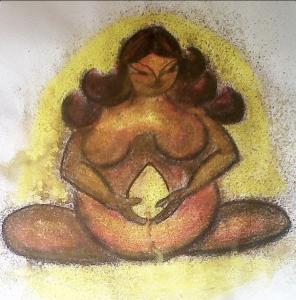![FullSizeRender[1]](https://wp-media.patheos.com/blogs/sites/396/2017/11/FullSizeRender1-300x225.jpg) If you are on social media you are no doubt abundantly aware of the “Me too” campaign that has been taking place. It’s a powerful way for women to convey to the world that they have been the victim of sexual harassment or sexual assault at the hands of men. It is quite clear that nearly all women have experienced either of those – some on a daily basis. They’re trying to show us the great extent of this problem by simply posting “Me too.” My initial response was simply this, “I believe you and it’s not OK.”
If you are on social media you are no doubt abundantly aware of the “Me too” campaign that has been taking place. It’s a powerful way for women to convey to the world that they have been the victim of sexual harassment or sexual assault at the hands of men. It is quite clear that nearly all women have experienced either of those – some on a daily basis. They’re trying to show us the great extent of this problem by simply posting “Me too.” My initial response was simply this, “I believe you and it’s not OK.”
But as I’ve pondered this more, it occurs to me that there is a direct correlation with men’s violence toward women with the theologies purveyed and adopted many men – theology that commits violence against the feminine Divine – to the point of relegating it to invisibility, obscurity, and outright non-existence. Note: many women subscribe to such misogynist theologies – as unwitting victims and purveyors of their own internalized oppression.
It should be obvious that if a major swath of society embrace no feminine aspect of God, then this leads to a minimizing of the status and role of women in the world – and their essential worth. Such results include glass ceilings, discrimination, and harassment in the workplace; glass ceilings, discrimination, and harassment in the domestic home life; and glass ceilings, discrimination, and harassment in religion.
As a religion that emerged from several patriarchal cultures, Christianity has a long history of ill treatment of women in too many quarters of the Church. It seems to me that one of the things that many of the parts of the Church share in common is familiarity with, and use of, the Lord’s Prayer. I suggest that that prayer is due for a software update.
Let’s face it, the world has changed. That is, understanding of it has changed – and how we perceive things – is reality for humans. For the first few centuries of Christianity, many people believed in a cosmology that had a 3-tiered universe; i.e., one where Heaven was (literally) above us. Earth is where we dwell now. And below us, for unfortunate souls, a (literal) Hell.
That view no longer makes sense to most people in the 21st century. We know that pretty much every point in the universe can claim to be “the center” of the universe. And we know that there isn’t any literal heaven “above” the earth – as we know the earth isn’t flat, but round, and that every point on the earth can claim to be “the center” of the earth. Every point that is “above” every point on the earth is equally “above”; and every point in the universe can claim to be “the center.” We adapted our views of reality based upon new information, needs and circumstances.
Similarly, there are over 38,000 different Christian denominations and none of them are exactly the same as the way the early Christians practiced their faith – nope, none of them. Indeed, each of those denominations wouldn’t even exist today if they hadn’t adapted and evolved along with the changing times.
Christianity of most every stripe is waning in the Western nations. This is largely due to many people mistakenly thinking that conservative evangelicalism or fundamentalism are the only forms of Christianity out there (many have never heard of progressive Christianity) — and they are rejecting the supernatural theism and substitutionary theories of the atonement that go with them — that is, they reject the notion of a magical, specifically male, god who lives in the sky who we should fear and who punishes us to hell if we don’t believe that Jesus’ death on the cross is what saves people’s souls.
People today experience God just as keenly out in nature as they do in Church — increasingly, even more so. People today know that no one religion has a monopoly on all of the truth. People today know that God is just as present within and among us, as God is transcendently beyond us (panentheism). People today know that God isn’t a boy – they know that Spirit is both (and neither) male and female — and beyond. People today know that theology is poetry – and that it provides meaning – not facts. Finally, people today realize that human-aggravated global warming is a very real and present danger and that taking care of the earth and our environment is a deeply spiritual matter – and that it’s part of being faithful to God.
With all of this in mind, it seems to me that the single most important thing that could help Christianity to become more relevant and viable to today’s people who are increasingly wary of it and off-put by it — would be to adapt the Lord’s Prayer. It’s already the case that there is no one “correct” version of it. Some of us say, “and forgive us our trespasses” — others say “debts”, and others say “sins.” Some add “and ever” after most of us say forever. Moreover, none of the liturgical versions of the Lord’s prayer are exactly the same wording as the (varying) wordings that Jesus taught his disciples to pray according to the various gospels. And, it should go without saying, that Jesus didn’t speak in King James English and that he never uttered a “which art”, “thy,” or “thou.” We’ve been changing the tune, and the wording of it, since the get-go.
Specifically, I would like to suggest that congregations adapt the Lord’s prayer such that it adds a few, specific, words – see bold:
Our Father and Mother who dwells in Heaven and Earth, hallowed be Your name. Your kingdom come, Your will be done, on Earth as it is in Heaven. Give us this day our daily bread, and forgive us our trespasses as we forgive those who trespass against us. Help us to avoid temptation and deliver us from evil, for Yours is the kingdom, and the power, and the glory forever. Amen.
In this version, I’ve changed “Lead us not into temptation” to “help us to avoid temptation” – as that just plain makes more sense. God doesn’t lead us into temptation – we do that ourselves. Some might wish to change kingdom (seems antiquated) to “kin-dom” or “beloved community.” I tend to favor going with the literal translation of the Greek baselia – “empire” – as it helps point out the subversive nature of following Jesus that goes against the claims to power of worldly empires.
I realize that some may wish to jettison the parental imagery altogether, yet to the extent that there is an essential goodness in maintaining some aspect of traditional lineage and metaphors, the two primary changes that I’m suggesting are the inclusion of “and Mother” (which many congregations are already doing) and “and Earth.” Those two changes alone would help billions of people realize that our faith is seeking to remain viable and relevant. Over half of the people on the planet are female and any Christian leader today jolly well better acknowledge that. If there’s an Abba, there’s an Ama. Long gone are the days when one could say “but male words such as he and his are ‘gender neutral in English’ and therefore women (and men) shouldn’t have a problem with seeing the Divine only referred to with male terminology.”
I’m sometimes asked by college students “Is God actually genderless?” I respond saying that I think there’s something to be said for the Divine feminine & the Divine masculine. Certain other world religions embrace both of those energies and seek to foster and tap into each. Our Jewish friends embrace the Divine feminine through the concept of shekina and also el Shaddai – literally, “the breasted one.
 That said, as Christians we also embrace the notion that “in Christ there is no east or west, male or female, slave or free, Jew or Greek,… for all are one.”
That said, as Christians we also embrace the notion that “in Christ there is no east or west, male or female, slave or free, Jew or Greek,… for all are one.”
If we’re all one, and if God is immanent within each of us, when we harass or assault one another – we harass and assault God.
Finally, as Christmas approaches, we might recall how a young maiden/virgin in Nazareth was ‘touched by an angel’ without her prior consent. According to the myth she was informed that she will divinely conceive and that she’ll be bearing the Christ child – after the fact.* A case could be made that Mary too could say #Me too. Yet Mary redeemed what happened to her by claiming it, owning it, weaving it into her life – and raising a son who would treat women well – a man who wasn’t afraid to be seen befriending them in the public square, who treated them not as chattle, but as equals, a man who was willing to be schooled by a woman and expand his sense of what God is up to in the world.
May those who have ears to hear, hear; and eyes to see, see. And may those who are willing say, “Me too” to needed evolution of our theological language.
Shalom, Salaam, Peace. Namaste. Amen and Amin. Blessed Be.
XX- Roger
* Note: Mary gives consent true, but it’s done simply assenting to what has already been determined will happen by Godly decree. She was going to conceive whether she assented or not. There is no conditional offer or proposal presented that accepts. She is simply given information of divine fiat. For a more empowering take, see this piece.
p.s. I refer to God as She and Her about as frequently as I do as He and His/Him in my book “Kissing Fish” It is handicapping for English to not have a gender neutral pronoun. Sometimes, I think it might be a good idea to refer to God as “Y’allweh.” This has the added benefit of reminding us of the Trinity – the relational aspects of the Divine.)
pps. This essay is an expanded version of a piece originally published in the John Shelby Spong newsletter.
Rev. Roger Wolsey is a United Methodist pastor and author of Kissing Fish: christianity for people who don’t like christianity
















